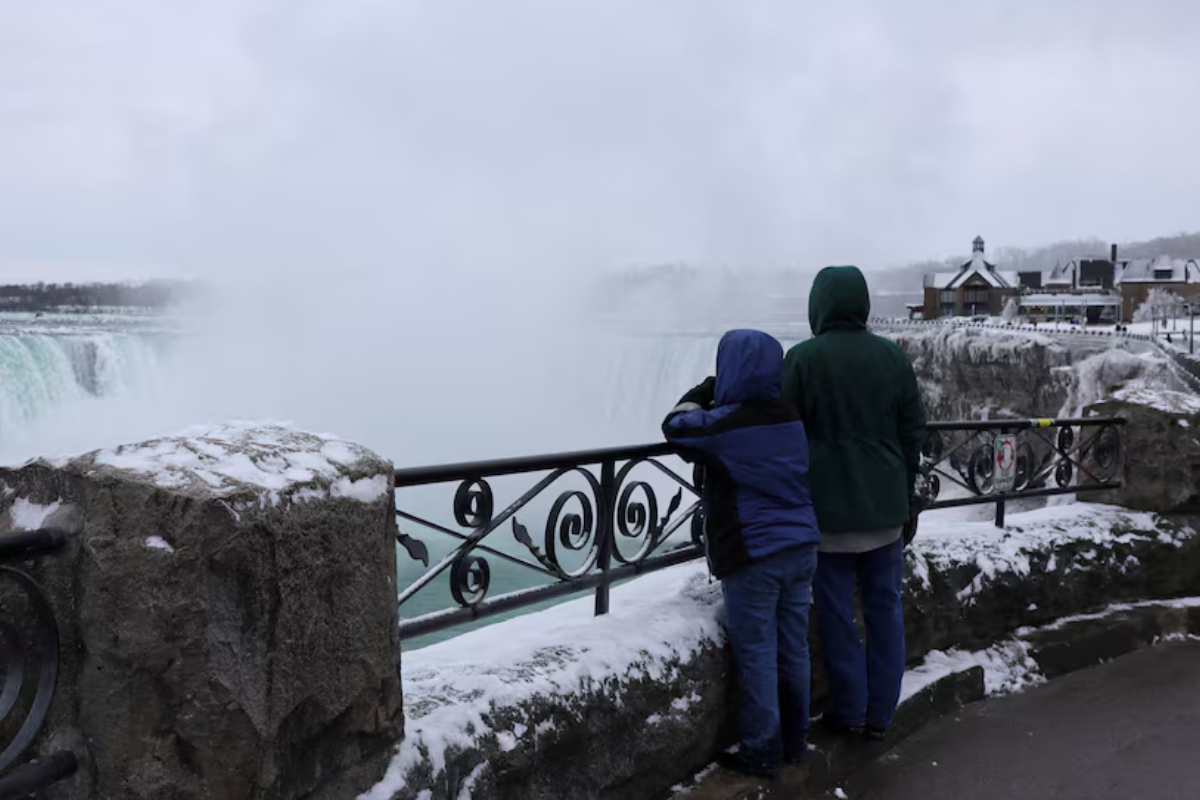TORONTO: Canada’s Niagara region has proactively declared a state of emergency ahead of a rare total solar eclipse on April 8 that is expected to gather massive crowds to areas in and around the region’s popular waterfalls with around a million visitors expected.
The Niagara region said in a statement on Thursday that Regional Chair Jim Bradley had declared a state of emergency “out of an abundance of caution.”
“Declaring a state of emergency … strengthens the tools the region has at its disposal to safeguard the health and safety of residents and visitors and protect our critical infrastructure in any scenario that might arise,” a Niagara region press release said.
The dramatic waterfall, situated along the Canadian-U.S. border, is in the path of the eclipse, and many people are splurging on hotels and rentals in advance to experience the phenomenon at one of North America’s natural wonders.
The mayor of Ontario city of Niagara Falls Jim Diodati predicted “by far the biggest crowd that we’ve ever had” on the Canadian side for the eclipse. Diodati estimated that up to a million people will be there, compared with the 14 million who typically visit during the course of an entire year.
The region will also be modifying some of its programs and services and closing some facilities to keep traffic off the roads on April 8.
From vintage train rides costing almost $4,000 per person to hotel rooms listed at $1,600 a night, businesses in and around majestic Niagara Falls are preparing to cash in on the April 8 total solar eclipse – with around a million visitors expected.
Demand has pushed up prices of hotels as people making last-minute plans book the last of the available accommodations. The eclipse will be a busy time both on the Ontario side and the New York side of the waterfall, with numerous special activities planned.
Many enthusiasts are planning to drive thousands of miles (km) across Canada to be there when the moon’s shadow covers the sun for about three to four minutes starting at 3:20 p.m ET. For Canada, this marks the first total solar eclipse since 1979, with the next forecast for 2044.
The region, which includes the municipalities of Niagara Falls, Niagara-on-the-Lake and St. Catharines, is one of the most heavily booked Airbnb destinations in Canada for the eclipse.
Hotel company Hilton that overlooks the falls is hosting a “parking lot party” offering eclipse views from its outdoor venue along with live music, a DJ and food trucks – priced at a C$10 entry fee, which includes a pair of protective solar eclipse glasses and a souvenir drink cup.
Hilton’s falls-facing rooms, which typically cost about C$200 a night, were priced at more than C$1,000 for the eclipse period. Prices at Sheraton Hotel were upwards of C$1,000 a night, compared to about C$250 a night for a weekend later in the month.
On the US side, a vintage train will be taking people from New York City to Niagara Falls, with tickets at nearly $4,000 per person.
Niagara Falls-based hoteliers and business owners have had the event on their radar for years, hoping to recoup losses they experienced during the COVID-19 pandemic.


